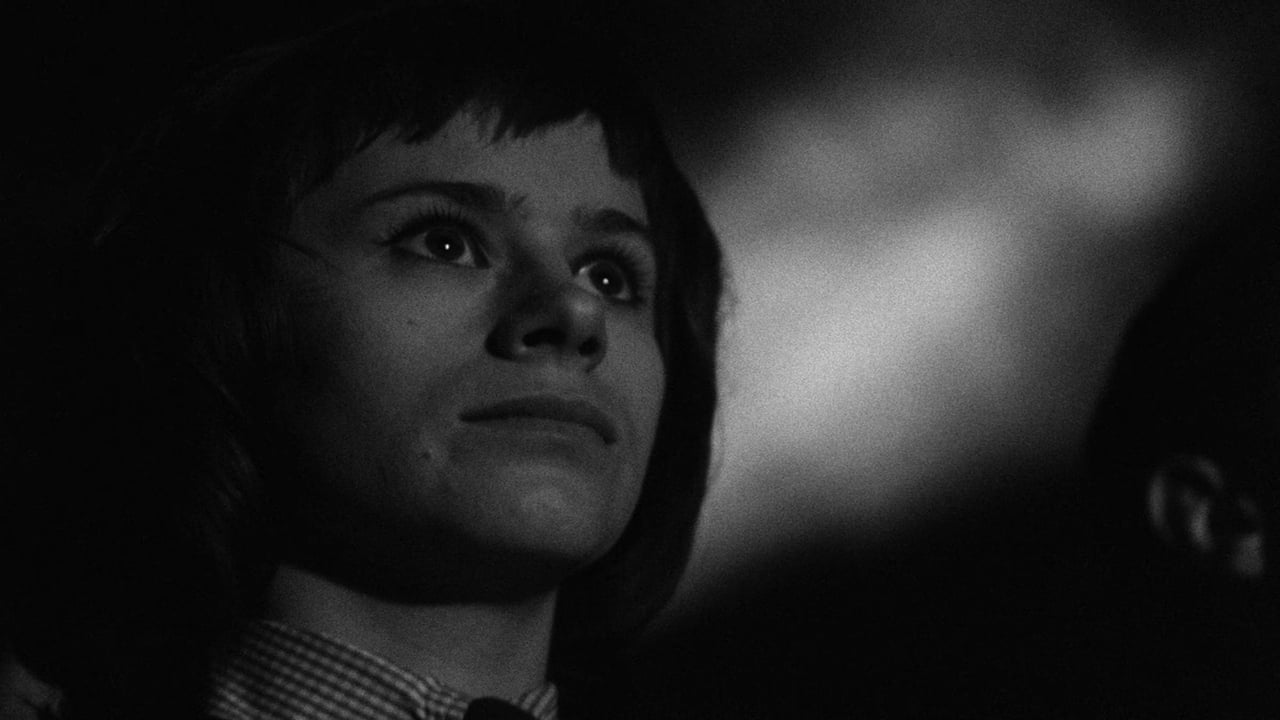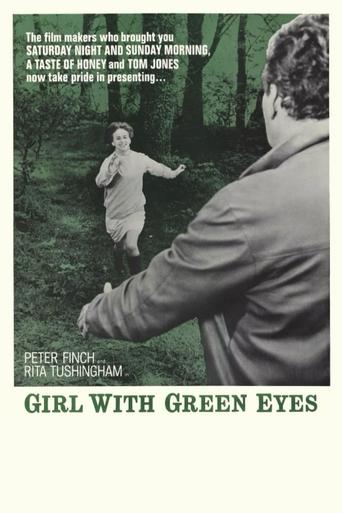

Seeing this film after 40-years reminded me how good Peter Finch was – just about the most worldly, in control guy you could hope to see on the screen. He seemed to get better looking as he got older, although he showed every one of his years.Rita Tushingham got all the raves at the time, and she was a unique presence around the early 60's; it's easy to see why she had an impact on the critics, she had a look with those big eyes and mobile features – she seemed to literally devour life in her early roles.Set in Ireland, Kate Brady (Rita Tushingham), a young country girl experiencing life for the first time in the city, has an affair with a much older man: a writer, Eugene Gaillard (Peter Finch). However, there are problems; he doesn't want to get too involved after a failed marriage, and she has inhibitions due to a suspicious father and her upbringing as a strict Roman Catholic.This was Desmond Davis first film as director, and possibly he was influenced by the French New Wave where everything had the feeling it was photographed by accident with plenty of sharp cutting. Some of the mood changes in the film are also a bit sudden as well. When Kate's father and friends arrive from the village to save her from Eugene, the film gets an attack of the John Fords with the whole sequence treated as broad comedy with even broader Irish characters.However there is assurance with the way the scenes of Kate and Eugene are handled. Kate although sensitive, is outspoken and often at odds with the older Eugene, she is a strong character and not as naive as he seems to think she is. Eugene makes allowances for Kate's youth, but is inclined to avoid confrontation – their exchanges are often intense, but also breezy and witty, with the odd insight thrown in.The bedroom scenes were quite frank for the times, even if they are of the sheets around the shoulders variety. John Addison's score has a wistfulness that portends the end of the affair, a sentiment echoed in the script. At one point Eugene observes, "There's no always in human relations people die, change, outgrow their best friends, nothing's permanent".Awkward touches aside, this is still an engaging film. It has two charismatic stars; a touch of sadness and a life-goes-on ending that feels about right.
... View MoreI ordered this on video through my overseas mailing service and it was easy to get a hold of to rent. Starring Rita Tushingham and Peter Finch, and based upon a novel by Edna O'Brien. My mail order contact told me he was one of Rita Tushingham's old boyfriends, which impressed me very much and for some reason made me biased toward liking the film.The film is set in Dublin and the Irish countryside nearby, where the people are, shall we say, strict about certain matters. Tushingham plays an impressionable young girl bored with her life at home on an Irish farm. She moves to Dublin and shares a flat with a best friend (wonderfully played by Lyn Redgrave). She meets and becomes attracted to Finch's sophisticated author. They have a very touching romance, much to the chagrin of the local Irish louts who consider the pair as deeply suspicious and sinners in the eyes of the Roman Catholic Church. Girl With Green Eyes was shot on location in Ireland and has a wonderful feeling for the people even when they are being intolerant and brutish.Tushingham and Finch are both appealing and bring a wonderful reality to their parts. The fate of their romance is left up in the air as Finch decides to go back to his wife and Tushingham refusing to go back to live on her father's farm, set on living her own life. In between, their relationship is portrayed with a great amount of tenderness and it is a lovely film for those of us who are romantics at heart.Peter Finch is photographed in a particularly flattering way. He looks spectacularly handsome in this, with a swathe of grey hair and a face that has seen a lot of living. And what a marvellous voice he had, it is totally unlike any other. And lo and behold, he was also an Australian. 'Girl with Green Eyes' is a small but precious gem to be treasured and absolutely recommended if you're feeling less pre-occupied with matters of the mind, and more with matters of the heart.
... View MorePoor Rita Tushingham--she did seem to inherit some strangely frustrating parts.In "A Taste of Honey" she was a young pregnant girl, first abandoned by her itinerant sailor, then landing in a "relationship" with a sadly confused chap. In "Girl with Green Hair," she's another adolescent who falls for a man twice her age. Won't she ever learn?Director Desmond Davis' work resembles Tony Richardson's so much that their styles are almost interchangeable. It may be because Composer John Addison also scored Richardson's "A Taste of Honey," and "Loneliness of the Long Distant Runner." It's remarkable how Addison's bleakly dissonant style so greatly influences the moods of these dramas.With Davis employing a lot of contrapuntal passages played by a thin woodwind ensemble--often featuring a solo oboe--one does feel the emptiness and loneliness of character emotions. There was no one who embodied the "Cockney Kitchen Sink" dramas of the 60s like Tushingham. She was perfect for her parts. Here ably supported by Peter Finch as a blase older man and Lynn Redgrave as a daftly talkative friend, Tushingham plays her role to the hilt.By the end, the viewer has come to experience a limited encounter--rather doomed from the start--between a worldly wise Dublin land owner and working class Brit girl . . . the latter of whom is finally able to move on with her education and find acquaintances more her age.The viewer during this visit has experienced some telling scenes of Irish-English life, and an interesting adolescent/mature fling at a brief encounter.
... View MoreLong into watching this studiously "small," slice-of-life portrait of a naive young woman, I was still wondering if the film would turn out, in the end, to have been worth watching. Earnest in its desire to be grittily true-to-life, in the neo-realist manner of the Angry Young Men, it is also clearly intoxicated with the quotidian lyricism and plain-spoken poetry of la nouvelle vague. It attempts to be charming and brutally frank at the same time, and manages, to some extent, to carry it off.But will we end up caring about Tushingham's somewhat obtuse small town escapee, or Finch's sophisticated cold fish? Or will we be left with the rather sodden sensation that we've wasted our time eavesdropping on bores? For my part, I was pleasantly surprised. The story ends with the palpable sense that Kate has grown up a bit, and Eugene has grown a little older and sadder. We've looked on as two people have lived their bittersweet lives, much as we live our own -- and we're a little sad to bid them adieu.To sum up: not as fresh and appealing today as it probably seemed in its time, but still rewarding and worthwhile.
... View More